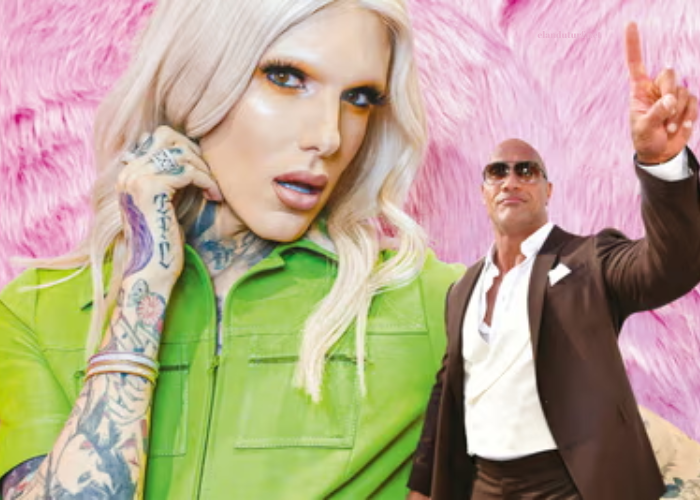In an era characterized by rapid technological advancements and the omnipresence of social media, the concept of celebrity culture has undergone a profound transformation. The dynamics of fame, once confined to traditional media platforms, have evolved into a complex web of instant gratification, curated identities, and public scrutiny. This article explores the multifaceted nature of celebrity culture in the digital age, examining its impact on society, the mechanisms that drive it, and the challenges faced by those who inhabit this unique world.
The Evolution of Celebrity Culture
Historically, celebrity culture was a phenomenon primarily confined to film, music, and television. Icons like Marilyn Monroe, Elvis Presley, and Michael Jackson achieved fame through carefully crafted public personas and talent that resonated with audiences. The media played a crucial role in shaping these images, with magazines, newspapers, and television serving as the primary conduits for public engagement.
However, the advent of the internet and social media has dramatically altered the landscape of fame. Platforms like Instagram, Twitter, TikTok, and YouTube have democratized celebrity culture, allowing anyone with a smartphone and an internet connection to gain visibility. This shift has led to the emergence of new types of celebrities, including influencers, YouTubers, and TikTok stars, who often achieve fame with little to no traditional media backing.
The Rise of Influencers
Influencers, individuals who have gained substantial followings on social media platforms, represent a new breed of celebrity. Unlike traditional celebrities, influencers often cultivate their fame through authenticity and relatability. Their followers are drawn to the personal stories and experiences they share, creating a sense of connection that transcends the polished image often associated with Hollywood stars.
The influencer economy has become a powerful force in the digital landscape. Brands now leverage influencers to reach specific demographics, recognizing the value of their direct connection with audiences. This has led to the proliferation of sponsored content, where influencers promote products and services to their followers. While this trend has opened new avenues for monetization, it has also sparked discussions about the ethics of influencer marketing and the authenticity of the recommendations made.
The Mechanisms of Fame in the Digital Age
In the digital age, the mechanisms that drive fame have become increasingly complex. Algorithms, engagement metrics, and viral trends all play a role in determining who gains visibility and how quickly they achieve fame. Social media platforms prioritize content that generates high levels of engagement, leading to a cycle where sensationalism and controversy often overshadow genuine talent or creativity.
The Role of Algorithms
Algorithms are the gatekeepers of visibility on platforms like Instagram and TikTok. They determine which content is shown to users based on their interactions, preferences, and viewing habits. This can lead to a phenomenon known as “algorithmic fame,” where individuals gain visibility not necessarily due to their talent but because their content aligns with trending topics or engages viewers in provocative ways.
As a result, many aspiring celebrities and influencers adapt their content strategies to cater to algorithmic preferences. This often leads to a focus on clickbait, sensationalism, and controversy, which can detract from the authenticity of their message. The pressure to maintain visibility and relevance can create a toxic cycle, where individuals feel compelled to engage in attention-grabbing behavior, even if it contradicts their values.
The Impact of Virality
Virality has become a cornerstone of celebrity culture in the digital age. A single viral moment can propel an unknown individual into the spotlight overnight. Memes, challenges, and viral trends can spread rapidly, leading to a surge in followers and opportunities. However, the fleeting nature of virality can also create a sense of instability for those who achieve fame in this manner.
For many, the pressure to replicate viral success can be overwhelming. The quest for the next big trend can lead individuals to constantly reinvent themselves, often at the expense of their mental health and well-being. The fear of becoming irrelevant can result in a relentless pursuit of likes, shares, and followers, creating a cycle of anxiety and stress.
The Social Implications of Celebrity Culture
The rise of celebrity culture in the digital age has profound implications for society as a whole. It influences not only how individuals perceive fame but also how they engage with their own identities and aspirations. The allure of celebrity can lead to a distorted understanding of success, self-worth, and societal values.
The Glamorization of Fame
Celebrity culture often glamorizes fame and success, portraying a lifestyle that is unattainable for most. This can lead to unrealistic expectations and a sense of inadequacy among those who consume celebrity content. The curated lives of influencers and celebrities are often marked by luxury, beauty, and adventure, creating a desire for a lifestyle that may not reflect the reality of their experiences.
The pressure to conform to these ideals can manifest in various ways, including body image issues, mental health challenges, and the pursuit of superficial values. Social media platforms can exacerbate these issues, as users compare themselves to the carefully curated lives of others, often overlooking the struggles and hardships that lie beneath the surface.
The Role of Online Communities
In the digital age, online communities have emerged as significant players in celebrity culture. Fans, known as “stans,” often create dedicated spaces on social media platforms to express their admiration for their favorite celebrities. These communities can foster a sense of belonging and connection, providing support and validation for individuals who may feel isolated in their daily lives.
However, online communities can also contribute to toxic behavior, including harassment, cancel culture, and the vilification of public figures. The anonymity of the internet can embolden individuals to engage in negative behavior that they might not exhibit in face-to-face interactions. This can lead to a culture of hostility where celebrities and influencers are subjected to intense scrutiny and criticism, often for minor transgressions.
Navigating Fame: The Challenges Faced by Celebrities
For those who achieve fame in the digital age, navigating the complexities of celebrity culture can be a daunting task. The constant pressure to maintain relevance, the scrutiny of public opinion, and the challenges of personal identity can take a toll on mental health and well-being.
The Weight of Public Scrutiny
Celebrities are often thrust into the spotlight with little preparation for the scrutiny that comes with fame. Every aspect of their lives is subject to public examination, from personal relationships to career choices. This can lead to a sense of isolation, as individuals struggle to maintain a sense of authenticity in a world that demands perfection.
The fear of judgment can lead many celebrities to curate their online presence meticulously. They may feel pressured to project an idealized version of themselves, often at the expense of their mental health. The disconnect between their public persona and private reality can create a profound sense of loneliness, as they grapple with the demands of their audience while longing for genuine connection.
The Challenge of Maintaining Authenticity
In a landscape where authenticity is highly valued, many celebrities face the challenge of remaining true to themselves while navigating the expectations of their audience. The desire to be relatable can lead individuals to share personal stories and struggles, creating a façade of vulnerability that may not reflect their true experiences.
This can create a dilemma for celebrities who feel the need to cater to their audience while grappling with their own identity. The pressure to conform to the expectations of fans and followers can lead to a loss of individuality, as individuals become defined by the personas they create online.
The Future of Celebrity Culture
As technology continues to evolve, the landscape of celebrity culture will likely continue to change. New platforms, trends, and societal values will shape how fame is perceived and navigated. However, the core challenges associated with fame—scrutiny, authenticity, and mental health—will remain relevant.
Embracing Authenticity
In response to the challenges of celebrity culture, there is a growing movement toward authenticity and transparency. Many influencers and celebrities are beginning to share their struggles, vulnerabilities, and imperfections, challenging the notion of an idealized lifestyle. This shift has the potential to foster a more genuine connection between public figures and their audience, encouraging individuals to embrace their true selves.
The Role of Mental Health Awareness
As discussions around mental health gain traction, the importance of mental well-being in the realm of celebrity culture is becoming increasingly recognized. Many celebrities are using their platforms to raise awareness about mental health issues, advocating for self-care and support. This shift has the potential to create a more compassionate environment for those navigating fame, emphasizing the need for empathy and understanding.
Conclusion
Celebrity culture in the digital age is a complex phenomenon, marked by rapid changes, new forms of fame, and evolving societal values. While the allure of fame may be enticing, the challenges associated with navigating this world are significant. As individuals continue to grapple with the implications of celebrity culture, it is essential to foster a more authentic and compassionate environment that values individuality, mental health, and genuine connection. By embracing these values, we can create a more balanced and humane approach to fame in the digital age.




